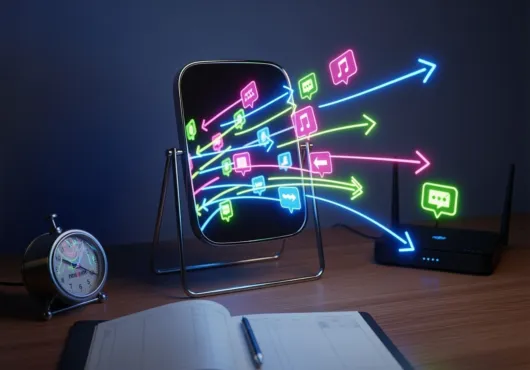Spoiler: It’s not world domination—but it’s not harmless, either.
The future of AI won’t arrive in a sentient flash. It’ll seep in—line by line, task by task, until we realize half our workflows are ghostwritten by algorithms and nobody asked if that was okay.
So, what’s actually coming? Let’s ditch the sci-fi and look at the real road ahead.
AI Gets a Day Job (And Probably Yours)
The next decade won’t be marked by robot overlords—it’ll be marked by AI-as-infrastructure. Quiet, ambient systems will rewrite how we:
Schedule meetings
Manage supply chains
Write marketing emails
Triage customer complaints
Jobs won’t vanish overnight. They’ll just become less visible as AI takes on the “boring middle.” You won’t lose your job to AI—you’ll lose it to someone using AI better than you.
The Death of the Universal Model
Today’s AI giants (like OpenAI, Anthropic, and Google) are chasing massive, general-purpose models. But over the next 10 years, expect a split:
General AI will continue to grow.
Specialized AI will dominate high-stakes arenas like finance
This paradigm shift might be great for innovation, and a nightmare for regulation.
The Rise of the AI Middle Class
Right now, using AI well feels like a privilege. But in 10 years, AI tools will be:
Easier to use
Embedded into operating systems
Trained on your personal data
Everyone from freelancers to small business owners will wield powerful, hyper-custom tools. Think “AI co-workers” that actually know your workflow. The catch? You’ll train them, not the other way around.
Deepfakes Go Pro
Face swaps and fake voices? That’s amateur hour. Coming soon:
Synthetic humans doing press briefings
AI-generated influencers with millions of followers
Corporate avatars replacing spokespeople
We won’t just question what’s real—we’ll start preferring the fake stuff. After all, AI doesn’t age, misspeak, or get caught in scandals. It just smiles, nods, and stays on-brand.
AI Will Shape Policy Before Policy Shapes AI
If you think governments are behind on tech now, just wait. AI will:
Rewrite how laws are enforced
Predict crime patterns
Influence elections through algorithmic messaging
Shape judicial decisions through “data-driven risk assessments”
And all of that will happen before most legislation catches up. The timeline of AI is moving faster than democracy.
Expect a Trust Recession
AI’s biggest disruption may not be technical—it’ll be emotional. As synthetic content floods the web:
Reviews will feel less honest
Videos won’t feel real
Even emails from friends will make you second-guess
Trust will become a premium product, not a default assumption. Sites, creators, and platforms that feel “human” will win by doing less, not more.
The Human Rebellion (Soft Launch)
Toward the end of this 10-year arc, the pushback begins. Not with pitchforks, but with preferences. Users will gravitate toward:
Lo-fi content
Transparent authorship
Sites that feel handcrafted, not AI-stamped
It’ll be the early days of the authenticity economy, where being slightly imperfect signals you’re real.
Final Thought: The AI Future Is Already Writing Itself
You won’t wake up in 2035 shocked that AI runs the world. You’ll just realize one day that it already kind of does—in the margins, in the inbox, in the thousand small tasks you stopped noticing.
The trick isn’t to fear it. It’s to see it. Then decide what part of the story you want to write.
What happens when algorithms know you better than you know yourself?
Explore the questions tech won’t ask—and the ones humans are afraid to. Let’s talk power, privacy, and the price of prediction.
Visit the Ethical AI Files →
